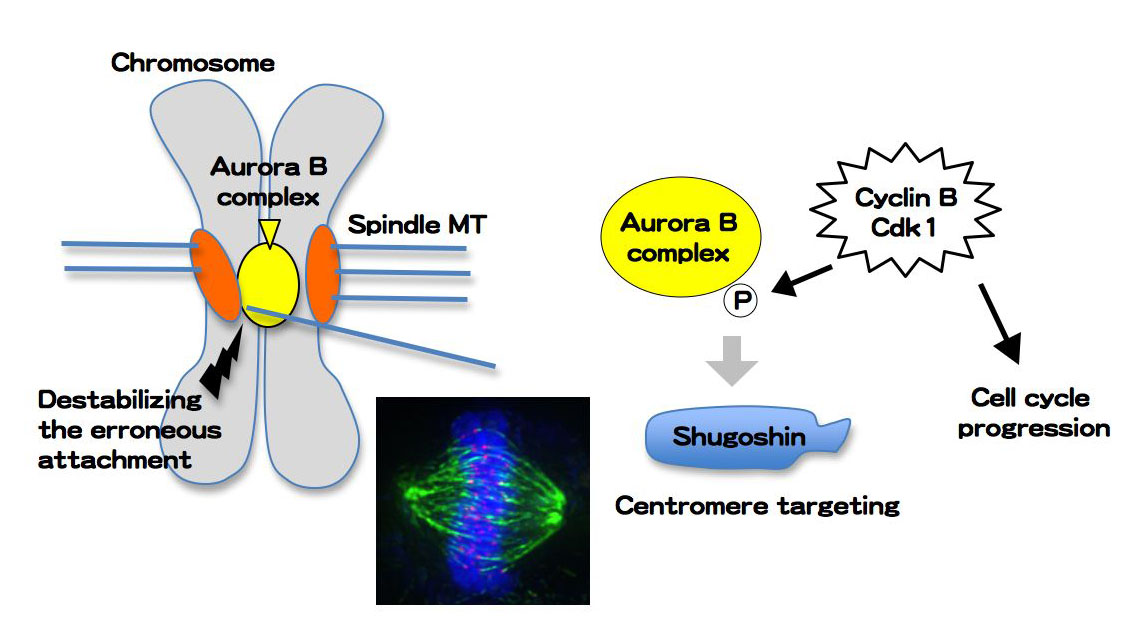Phosphorylation of the CPC by Cdk1 promotes chromosome bi-orientation.
Successful partition of replicated genomes at cell division requires chromosome attachment to opposite poles of mitotic spindle (bi-orientation). Any defects in this regulation bring about chromosomal instability, which may accelerate tumor progression in humans. To achieve chromosome bi-orientation at prometaphase, the chromosomal passenger complex (CPC), composed of catalytic kinase Aurora B and regulatory components (INCENP, Survivin and Borealin), must be localized to centromeres to phosphorylate kinetochore substrates. While the CPC dynamically changes the subcellular localization, the regulation of centromere targeting is largely unknown. Here we isolated a fission yeast cyclin B mutant defective specifically in chromosome bi-orientation. Accordingly, we identified Cdk1-cyclin B dependent phosphorylation of Survivin. Preventing Survivin phosphorylation impairs centromere CPC targeting as well as chromosome bi-orientation, whereas phosphomimetic Survivin suppresses the bi-orientation defect in the cyclin B mutant. Survivin phosphorylation promotes direct binding with shugoshin, which we now define as a conserved centromeric adaptor of the CPC. In human cells, the phosphorylation of Borealin plays a comparable role. Thus, our study resolves the conserved mechanisms of CPC targeting to centromeres, highlighting a key role of Cdk1-cyclin B in chromosome bi-orientation.
Program member
Yoshinori Watanabe (Institute of Molecular and Cellular Biosciences)

Figure
